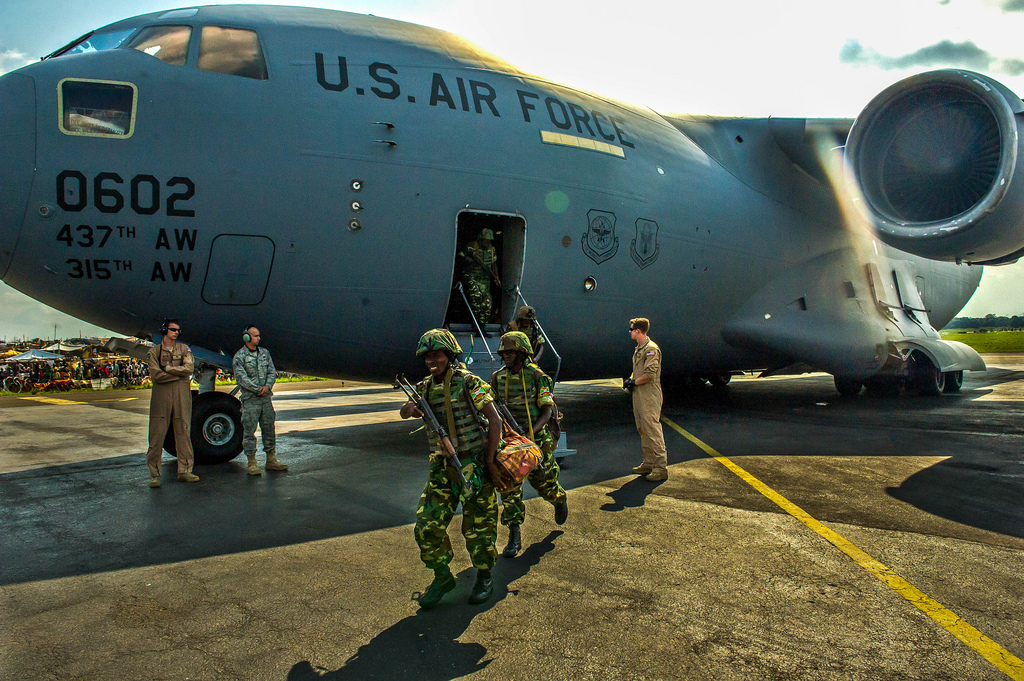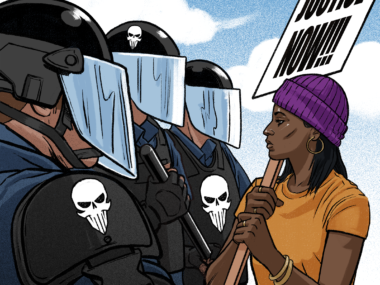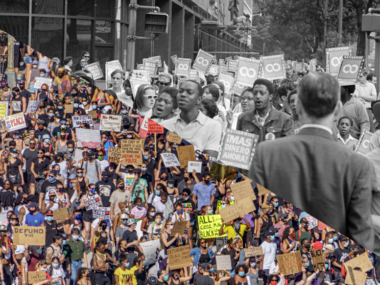
Over the past two+ years, the war in Syria has dominated policy debates and newspaper coverage while wars in the Central African Republic, South Sudan, and the Democratic Republic of the Congo have not.
My question today is simple: Why do some civil wars capture the attention of the American public, its news media, and its leaders while others do not? What drives this phenomenon?







10 comments
I think there are two explanations here. The first is that while the war in Syria may not directly affect core US interests, it certainly does intersect with them — the conflict is increasingly a proxy war between Iran and Saudi Arabia, it directly affects the global anti-chemical weapons norm, and so on. The last decade’s wars in Sub-Saharan Africa are perceived as being far less relevant to US interests. While I’m not old enough to remember myself, I believe wars in the region attracted more attention in the US media when they were perceived as affecting US national security, like when Cuba involved itself in the Angolan civil war.
The second is the unfortunate “Africa is a country” perception. While the average American probably doesn’t know much about Syria, most know that it’s a country, and its rough location. I’d be surprised if the average American can name more than a dozen African countries.
How about simple racism? Africans are troublesome and yet unimportant. They’re just bad. So what if they have wars?
I would prefer a more conspiratorial theory, and I’m sure we all could some up with at least one, but sadly the simpler explanation seems more likely.
Sad to say that is one of the more important reasons for Americans’ disinterest.
If it were just racism then Americans would be far more informed on South American conflicts since most of us have the erroneous image of South Americans just being slightly darker skinned (note that I am fully aware race and skin color can be pretty complex in different South American nations). Racism might be a factor, but I don’t believe it’s dominant.
I think it’s several things.
The first, and most important, is Africa’s lack of relevance to global trade and security for the past two centuries. The parts of Africa that were somewhat more relevant, specifically northern Africa, have gotten somewhat more mention in the news, especially Egypt (which admittedly is a nation that isn’t quite African or Middle Eastern).
The second is the continued bad news out of the continent. Since independence Africa has mostly been reported for its famines, diseases, wars, coups and, more recently, genocide. It’s only been relatively recently that you could start hearing consistent good news on Africa.
Partially as a cause and partially as a symptom, most books I’ve seen written go to great lengths to talk about humanitarian disasters without useful historical background information, political details and explanations of military strength.
Third is experience and personal relevance. There aren’t any great powers in Africa and of the powers across the planet, most have had much less involvement in Africa since their colonies achieved independence. Some deployments to help governments, some involvement in coups but in general a good deal of distance between the citizens of the powerful nation and the citizens of Africa.
Tied into that is how relevant information on African nations is to the citizens of the powerful nation. Just looking at a bookstore or library in America will show you that 99% (often 100%) of all books available on Vietnam are only about the Vietnam War, most often the 1960s through 1973. Americans care about that because of how many Americans were involved in it. You will see far fewer on Vietnam in the 1940s through 1950s or 1975 to today, even though those were also vital periods in Vietnamese history. To date I’ve only found a handful of exceptions to this, most notably Horne’s A Savage War of Peace.
Personally I’d be happy to see more books and articles on the wars, politics and economies of central and southern Africa (preferably reliable ones and not the equivalent of a New York Post). However that simply is unlikely in general until African states become more important to global affairs.
Alright, really wishing there was an edit function to this. What I meant by books about humanitarian crises being a ’cause’ was left too vague. It really should have read that the books about those problems were a cause of the image of a problematic Africa as well as being a symptom of the problems Africa has had.
Taylor Marvin is pretty close, but let’s clarify. The US may or may not have a hard, definable interest, per se, in a country or a region, but some powerful domestic constituency always will. Usually, this is one or more business interests (our baseline definition for “US interest”), but this isn’t necessarily the case. Consider US relations with Cuba, Israel, Venezuela and Mexico in this light.
There is one other constituency which mustn’t be ignored: general public sentiment. A positive or negative reading from the public can be the determining factor, and we all saw this in action after the president’s announcement of his intention to intervene militarily in Syria. There isn’t always the weight of public opinion to sway an administration one way or the other (usually the case when force isn’t an issue), however the driver behind any US position then defaults to the most powerful constituency.
One can also use this measure to gauge the mechanism (force vs diplomacy), strategy (exemplified by TPP, TTIP, NAFTA, NATO, Five-Eyes, etc) and the determination of US foreign policy institutions and issues with international ramifications (Iran, immigration, regulation, etc).
Analyzing US foreign policy as a balance of *domestic* political constituencies is usually pretty straightforward, however there are the rare exceptions: Somalia and Iraq. I can’t think of any others. You’ll rarely go wrong otherwise..
The comments above have pointed to two of the three factors that could account for the skewed coverage: American public opinion (Americans don’t care about Africa, either because they are ignorant or racist as one comment suggested) and political leadership (U.S. politicians do not think that Sub-Saharan Africa touches on core U.S. national interests in the way that the Middle East does).
Both of these are undoubtedly critically important, but the third factor, the news media, may also be important. Major news outlets have a lot more resources to devote to covering the Middle East because they have long covered that area (and this likely is connected to U.S. geopolitical interests there during the Cold War) so they have the necessary infrastructure and language expertise needed to cover those conflicts. The same is not true of Sub-Saharan Africa which is an enormous area, requires numerous language skills (and ones that are rarely taught in the U.S.), and where simply accessing the areas needed to cover the stories is much more difficult given the poor infrastructure.
Of course, the lack of news infrastructure in Africa is not unrelated to the other two factors noted above, but if we are interested in shifting the balance of news coverage, this may be the factor most amenable to change. By promoting African language skills, pushing news media to open more bureaus in Sub-Saharan Africa (a tough sell these days given that many are cutting back on their foreign bureaus), and developing the infrastructure needed to better cover this region of the world, we may begin to see more coverage of Africa’s civil wars, and this, in turn, could raise awareness of these conflicts among the American public and begin to shape political leaders’ perceptions of U.S. national interests.
Out of curiosity, I looked up how many bureaus major American newspapers have in Sub-Saharan Africa. The Washington Post has one in Nairobi (they also only have a single bureau for Latin America, in Mexico City). The LA Times has one in Johannesburg, the Wall Street Journal bureaus in Johannesburg and Lagos, and I can’t quickly find bureau information for the New York Times.
I’m not familiar with how the news business works, but wonder if news organizations can report more with less foreign bureaus now — though I really have no idea.
What? You mean this stuff isn’t being covered in the US? http://www.aljazeera.com/news/africa/
http://www.bbc.co.uk/news/world/africa/
John’s comments remind me of a conversation with a journalist in Jerusalem years ago on this same point. While sipping cocktails in the garden at the American Colony this correspondent was more blunt: “why ever would you want to go there when you could be here? Don’t think we are saints. Reporting on suffering doesn’t mean you like suffering!”
Al Jazeera is based in the Middle East (which also means that it has a bias because of proximity to report on Africa more) and the BBC is based in the UK. I myself read both, but many Americans don’t and, to be honest, I don’t think the BBC’s reporting is necessarily more in depth than what I find in the New York Times.